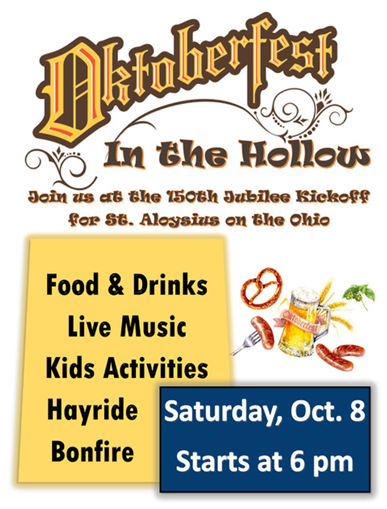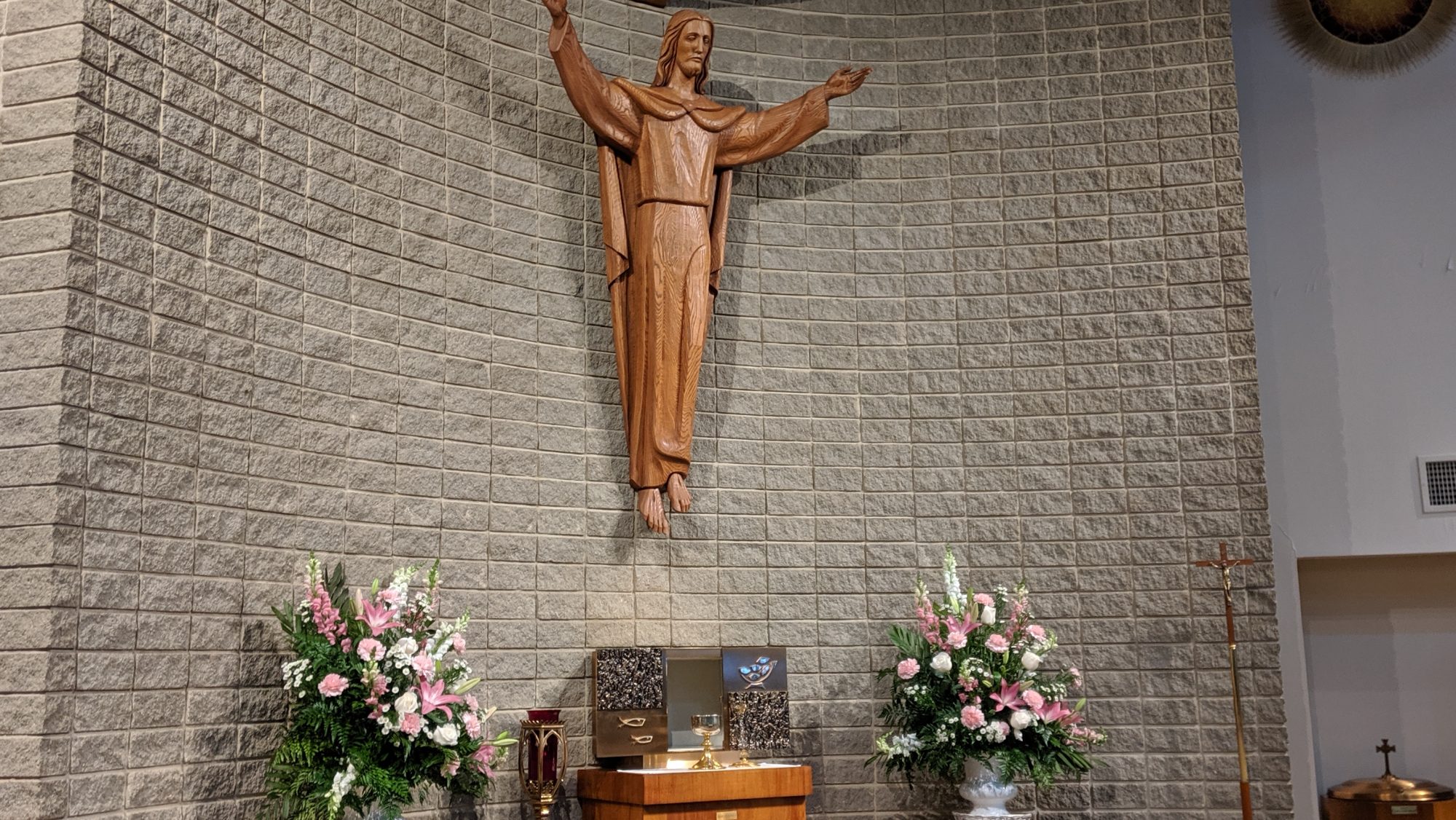
Oktoberfest In The Hollow


A Catholic Church, serving Delhi Township Ohio

My uncle Jim was a very fine man, he was gracious, kind, a hard worker, a good son and brother, and a great uncle. In his youth he was a talented musician and was self-taught to play the piano, he would sing at parties, and loved to spend time with my uncles, aunts, and his nieces and nephews. Like many in his generation he was a fierce drinker. When he was younger, he would go out to the pub with my grandfather and uncles on the weekend. He had a ritual which included stripping down to the waist, shaving and washing at the sink, combing the few strands of hair that he had, adding lotion and aftershave, and then dressing in a singlet, shirt, tie, and jacket. He was elegant. After my granddad died, my uncle Jim started to go out to drink during the week, at first, once or twice. He kept up his grooming regime but over time this ended, and he would go out drinking every night and at this stage he always drank alone. He remained kind and genial, but he was more guarded about his generosity. Eventually, when he retired, he would rise early and go to a pub and stay there until closing time. Then he would look for another late-night bar and spend his time there. Eventually he didn’t even go home, would find a place to sleep in a trailer, or store front, so that he was close to the pub when it opened. Toward the end he pretty much looked like a ragged, disheveled, down-and-out derelict. Actually, Uncle Jim was very wealthy and carried thousands of pounds around with him because he was always afraid he might not have enough for the next drink.
I guess this next part of the story happened when I was about fourteen years of age. A group of friends and I were going into the city to see a movie. This involved taking a bus into the city center and walking to O’Connell Street, the main avenue in Dublin city center. It must have been winter as the evenings were dark early, cold, and wet. Nevertheless, spirits were high. After the movie we crossed the street to get burgers at McDonalds. As we made our way to the bus we passed a lot of store fronts, many of which had recessed entrances. It was not unusual to see homeless people sleeping in these recesses, trying to get in out of the cold and the damp. Typically, all you saw was a figure wrapped in a pile of dirty blankets. As we came upon one such sad figure, I realized that I knew him. It was my uncle Jim! Here on the premier street of Dublin, in the cold, the dark, the damp, late at night, was my down-and-out drunken uncle, sleeping on the street. I didn’t know if he was alive or dead, sick, or hurt, in need of help or just sleeping it off. In that moment I my first thought was not for my uncle but was for my own image. I thought: “What would my friends think if they knew this was my uncle?” And so, I passed by and left him there.
I should have stopped, I should have at least checked that he was not hurt, I could have put him in a taxi and sent him home, I could at least have made sure he was alive. I can’t tell you the name of any of the four or five boys I went to the movies with that evening but at that moment what they thought of me was more important than taking care of my own uncle, my own flesh and blood, a man who had always been kind, generous and loved me. Of course, I was fourteen years old and more concerned with image than anything else. Nevertheless, even at fourteen years of age, reflecting on that incident, I determined I would never betray doing the right thing again.
We can allow lots of things to distract us from doing the important, essential, good, and loving things. The rich man in the Gospel never saw the poor man at the gate because he was blind. He could only see himself, his image, his fortune, his position, his status, was these were his major concerns in life. Looking only to his own best interests he couldn’t see anyone else. The people around us, wife/husband, son/daughter, mother/father, priest, neighbor, friend, fellow worker, people in need, whoever, don’t have to be destitute like Lazarus. The truth is that God has placed them at our “gate.” God asks us to care for them, help them, even love them. Everyone is rewarded by God for the love they share with others, and He will care for those who cared for His children.
It is now twenty-one years since the horrific and cowardly attacks of September 11, 2001. Anyone who lived through that day remembers it clearly, vividly, and with a great sense of sadness. Through the presence of all forms of visual media, we were able to have a front row seat and watch horrific things happening, in real times, as they say. However, as graphic and awful as these images were, it seems to me, that the more lasting memories, more impressive images, and the true sense of 9/11 was not captured by the horror, but by the honor. The honor of our brave citizens who knew that to give a life is always better than to take a life. To die saving someone is honorable, while to die killing the innocent is not.
On that terrible day, evil did its worse, but it did not overcome good. The image of dusty firefighters carrying limp bodies and injured people from the rubble; images of doctors, nurses, paramedics, on the streets cleaning wounds and bandaging the injured; the images of brave police officers, emergency personnel, and even ordinary citizens running into burning, crumbling, falling buildings to search and save men and women who were not strangers to them, but brothers and sisters. This is the heritage of 9/11. The image of priests, ministers, rabbis, chaplains, and even a cardinal, encouraging and praying with the brave, anointing the living, and providing rites for the dead were captured on that day. These images are the lasting true legacy of that terrible day.
These are the things God saw that day and these are the people God will remember and reward. For, even though we forget, God never forgets the good we have done, and He never tires of loving those who love.